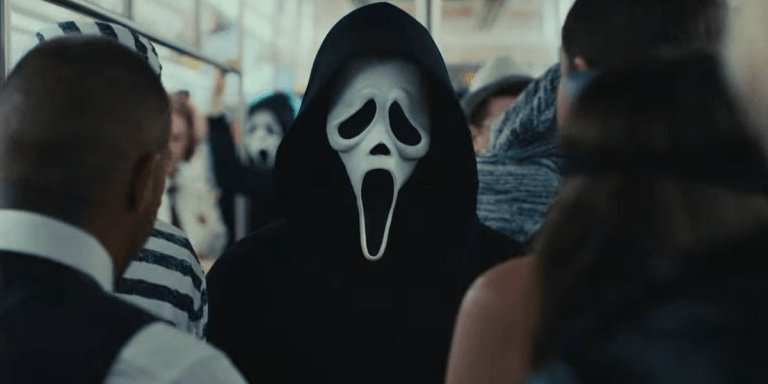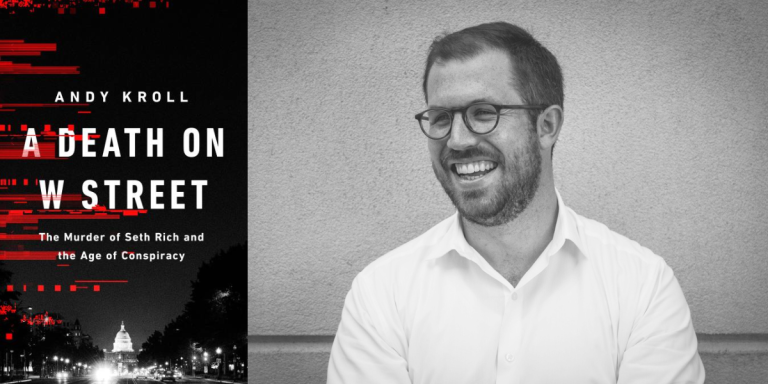Murder, Vice, and the Reign of the Dirty Cop: What happened to James Burke?
 Your book Jimmy the King is about the former Suffolk County police chief James Burke and his long reign of corruption. He inherited the Gilgo Beach case in 2012. What did he do to investigate the case?
Your book Jimmy the King is about the former Suffolk County police chief James Burke and his long reign of corruption. He inherited the Gilgo Beach case in 2012. What did he do to investigate the case?
The short answer appears to be not much, unfortunately–at least nothing effective. Burke was appointed chief less than nine months after a tenth body was found near Gilgo Beach, and just over two weeks after police finally found the remains of Shannan Gilbert, the woman whose disappearance led to the discovery of the others. So, this was a really formative period for the investigation.
But Burke appeared to seize on the case almost immediately as fodder for internecine power struggles. Even before he took office, he forced the existing chief of detectives to retire under threat of demotion, and removed the detectives who had overseen the Gilgo Beach investigation off the case. According to that former chief of detectives, Dominick Varrone, nobody in Burke’s incoming administration asked them to debrief those investigators who were taking over the case–so the investigation essentially started from scratch months after the bodies were found.
That lack of communication may have contributed to key leads getting lost–witness statements, apparently gathered in 2010, that described in detail a suspect and his vehicle, a first-generation Chevy Avalanche. Those witness statements were rediscovered by investigators last year and the truck tip led them directly to Heuermann.
Under Burke, Suffolk authorities also took steps to keep the FBI from aiding the investigation. That included — according to Tim Sini, the district attorney who took over the case after Burke — barring detectives from sharing case information with the FBI’s Behavioral Analysis Unit, whose duties including profiling serial killers.
Why was Burke so suspicious of the FBI?
Suffolk County is a fiercely insular jurisdiction, and initially I think Burke simply reflected a tribal distrust of outsiders–particularly feds. From those who knew him well, I’ve gathered this was mostly a turf battle thing, where in Burke’s mind a worse fate than a big case in his territory going unsolved was another agency solving it. One of Burke’s closest associates in the department, a corrupt lieutenant named James Hickey, ultimately cooperate with federal prosecutors and in trial testimony put his feelings pretty succinctly: “We all hated the feds.”
That hatred got a lot more acute–and became about self-protectionism–after December 2012, when Burke and his top detectives beat up a drug addict who had the poor luck to steal a duffel bag from Burke’s truck that contained sex toys and porn–the chief’s “party bag.”
The feds learned of the beating within months and started investigating, and for the next several years, an all-consuming, ultimately futile, criminal conspiracy took over the top ranks of the police department and DA’s office as they launched a corrupt campaign to cover up the crime. Multiple veteran officers committed perjury or lied to federal agents, the county’s then-DA and top corruption prosecutor both helped to orchestrate the cover-up, and at least one top cop – the aforementioned lieutenant – feared the Burke would kill him so that he couldn’t snitch to the feds.
Besides ensuring that Burke wasn’t going to allow the feds anywhere near his jurisdiction, including the serial killer dumping ground off Gilgo Beach, this whole saga meant something simpler: from early 2013 through at least late 2015, when Burke ultimately resigned before pleading guilty, the top brain trust of a county of 1.5 million was utterly distracted by their own ongoing criminal conspiracy. This is how federal prosecutor Lara Treinis Gatz put it in court: “No police work is getting done. They’re spending their day protecting Jimmy.”
That had disastrous consequences not just for the Gilgo Beach investigation, but the county’s metastasizing problem with the murderous street gang MS-13 as well. Burke pulled seasoned detectives off of gang task forces and seriously hobbled law enforcement efforts in that regard. The common denominator in both the Gilgo Beach and MS-13 cases, I think, is the marginalized victims – sex workers and Hispanic migrants. Burke felt he could use those life-and-death investigations as pawns in his own petty beefs with no uproar, and for the most part he was right.
What did cell tower data have to do with the arrest of Rex Heuermann? Why didn’t James Burke look into the cell tower data at that time?
The strongest piece of evidence in this case was cell phone data, most of it from “burner,” or unregistered phones, allegedly used by the serial killer. Before Burke took office in 2011, a federal agent had analyzed that data and produced a report the next year that suggested that the serial killer lived in Massapequa Park and commuted to Midtown Manhattan – just, it turns out, like Rex Heuermann.
But Burke made little use of that data, which would’ve required detectives to zero in on homes in those areas and start backgrounding residents. A story myself and my colleague, Alexandra Heard, recently wrote for The Washington Post showed that homicide detectives were reluctant to do so even after Burke left office, as recently as 2021. I think it at least partly speaks to a territorial unwillingness to piggyback on the methods of federal investigators.
But that old report, started in 2011, was nonetheless key to the current administration homing in on Heuermann. It’s scary to think that if Burke had taken office a little earlier, that analysis may have not been done at the time, and authorities potentially could not have been led to Heuermann.
Suffolk County authorities under Burke also didn’t perform “dumps” of nearby cell towers, in order to see what other phone activity there was at relevant times. This method could’ve revealed which other phones happened to be in the same location as the burner phones involved in the murders–potentially leading investigators to the killer’s personal phone if he was careless enough to carry it with him while using burners, which prosecutors now say was the case with Rex Heuermann.
I gather that Suffolk County authorities didn’t think they could fulfill the necessary legal requirements to dump the towers, but experts I spoke to described it as an obvious and accessible step that they should have taken. And this is a law enforcement regime since accused of quasi-legal wiretapping of enemies, so it’s comical–and reveals where Gilgo Beach was on the priority list – that they let warrant requirements stymie them in this case.
Who is Ray Tierney and what was his relationship with James Burke?
Tierney is the current Suffolk County DA, who took office last year. Available court records have shown that within a few months, the task force he oversaw used existing records to achieve what had stymied his predecessors for more than a decade despite them having access to the same materials: He turned up a viable suspect who Suffolk authorities are certain is the right guy. (Heuermann has denied the killings through his attorney and pleaded not guilty.)
Tierney’s backstory is fascinating and under-reported in all this. As detailed in my book, he was a Suffolk County prosecutor who left for the federal side after clashing with Burke’s cronies. He also happened to be the brother-in-law of one of the detectives – Burke’s so-called “palace guards” – who helped beat Christopher Loeb, the drug addict who stole Burke’s duffel bag. That detective ultimately flipped against Burke, leading to the federal takedown of the corrupt law enforcement regime, and there’s reason to believe that Tierney played a sizable role in convincing the detective to cooperate and facilitating that the federal side was receptive to that cooperation. So, Tierney has been a very interesting behind-the-scenes character in the corrupt saga of Suffolk County law enforcement long before his star turn in catching this alleged serial killer.
What happened to James Burke?
Burke memorably told his cronies, when it was clear the feds were closing in on him, that he could spend a few years “playing cards with mobsters” in prison before moving into law enforcement consultation.
He was sentenced for 46 months in prison and was released in April 2019. The consultation opportunities never panned out, at least partly due to Burke’s rising notoriety as a key figure who botched the Gilgo Beach investigation. He appears to still live in Smithtown, New York, the same home outside of which his police truck was burglarized of the illicit duffel bag back in the day, and a paparazzi apparently caught him looking nearly unrecognizable after Heuermann’s arrest.
Despite being a convicted federal felon, who admittedly spent years orchestrating a criminal cover-up rather than doing his job, Burke is still getting a police pension. Suffolk County taxpayers paid him $145,485 last year.
Discover the Book
An incredible four-decade account of murder, power, and corruption in one of the country’s largest police departments
In 1979, the gruesome slaying of a thirteen-year-old boy riveted the suburbs of Suffolk County, New York. As the county hustled to bring the case to a dubious resolution, a wayward local teenager emerged with a convenient story to tell. For his cooperation, James Burke was rewarded with a job as a cop.
Thus began Burke’s unlikely ascent to the top of one of the country’s largest law enforcement jurisdictions. He and a crew of likeminded allies utilized vengeance, gangster tactics, and political leverage to become the most powerful and feared figures in their suburban empire. In his quest to maintain that power, Burke botched — intentionally or not — dire investigations like that of the famed Gilgo Beach serial killings and the county's MS-13 gang scourge.
Until a pilfered bag of sex toys brought it all crashing down.
Jimmy the King is the story of the rise, reign, and paranoiac fall of a corrupt cop and his regime—a crime family with badges and guaranteed pensions. Novelistic in detail and piercing in its political insight, this book will leave you questioning who modern policing serves, who it protects, and who it preys upon and abandons.
By clicking 'Sign Up,' I acknowledge that I have read and agree to Hachette Book Group’s Privacy Policy and Terms of Use
What to Read Next






